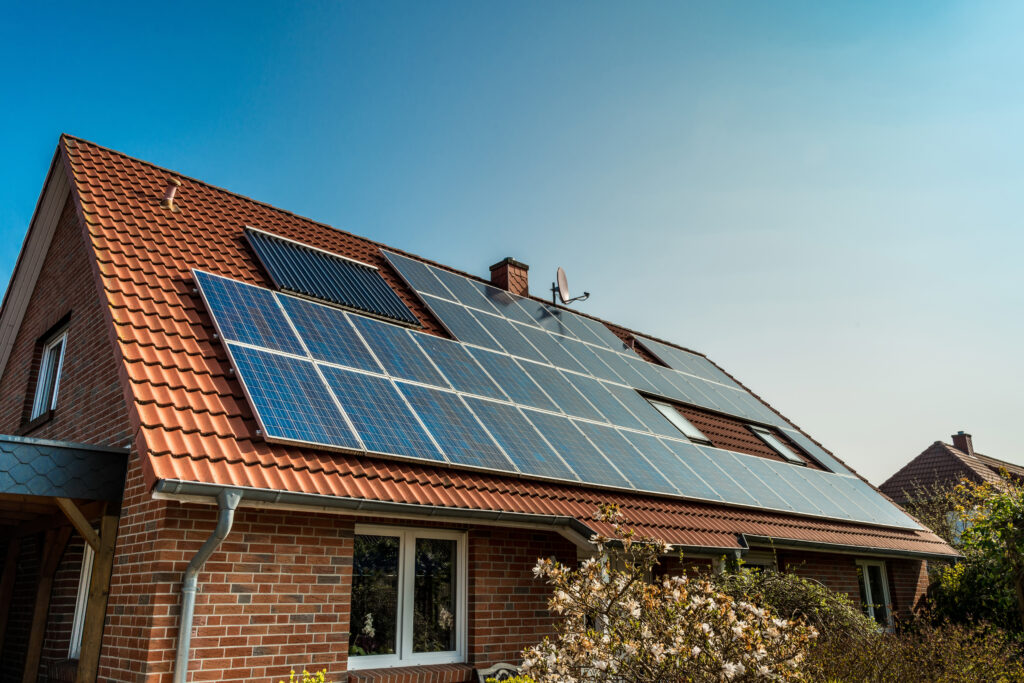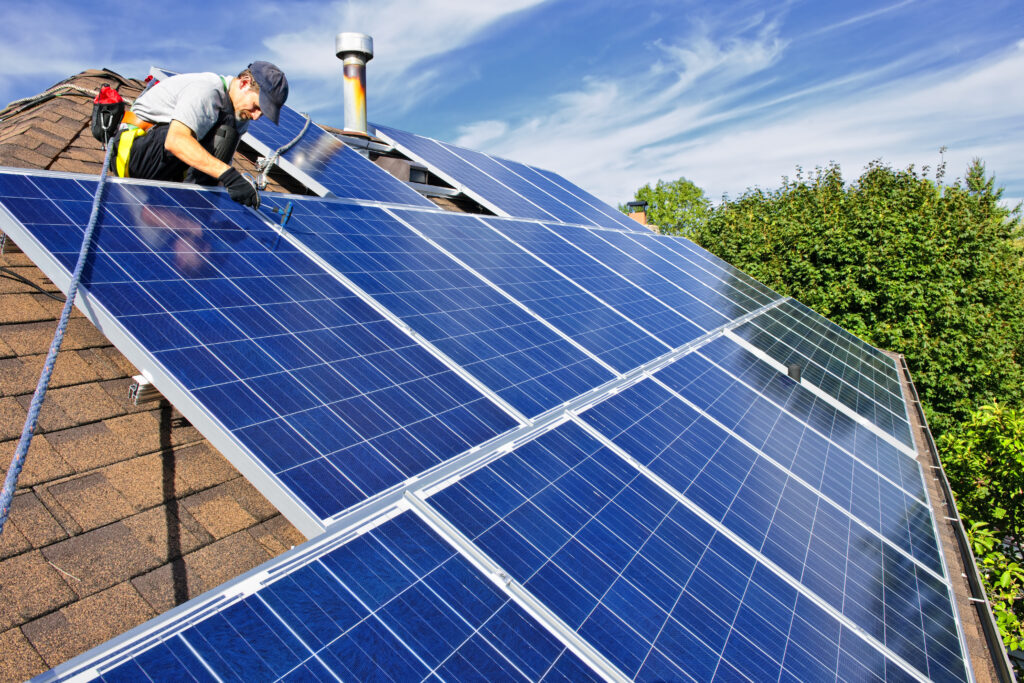This article was guest written by Jane Marsh.
Installing solar panels means a reduced carbon footprint and access to renewable energy. However, it may be challenging to convince your homeowners’ association (HOA) that it’s a good idea to invest in such a system in your neighborhood.
Solar panels and HOAs don’t mix in some states, while they get along fine in others. Here are your options as a homeowner:
Impact on Home Value
According to Pew Research Center, 46% of American homeowners in 2019 considered adding solar panels to their homes. Their reasons ranged from helping the environment to tax cuts and saving money on reduced electricity bills.
In many cases, installing solar panels can also increase your home’s value. While impact depends on where you live, the number of homeowners looking for green energy continues to grow, and so solar panels also turn out to be a great long-term investment.
Installing solar panels can be expensive, although prices vary depending on location and efficiency. In 2021, the average cost of installing a standard 5kW system (which typically requires 17 solar panels) was estimated to cost between $15,000 and $20,000 before tax credits. Depending on their size and location, most homes require around 20-25 solar panels.
But before the price tag turns you off, remember the incredible impact of solar panels: most options for residential use turn 11%-15% of solar energy into usable electricity.

Intersection With HOA Covenants
HOAs are private organizations that preserve property value in their communities. They typically have several rules, also known as covenants, that every homeowner who moves into their community must follow. These rules are agreed to before someone joins a community.
HOAs are run by members of each community, so their specific restrictions vary. However, the most common HOA guidelines include regulating the external appearance of homes and properties. Because of this, HOAs may not take kindly to solar panels on your roof or in your yard.
However, HOA solar panel guidelines will depend on where you live – some neighborhoods may welcome them while others expressly forbid them. It all depends on your specific HOA.
Regulation by State Laws
Before speaking with your HOA, you should check for state requirements and laws on solar panels. Many states have solar access laws that regulate the way homeowners install panels on private property.
If your state has solar access laws, they may override HOA restrictions. This depends entirely on your state and specific HOA. If your home has historical value, these laws may restrict adding panels to it.
Solar easements are another kind of legal agreement that can impact solar panel installation. These are voluntary, written agreements you can make with neighbors to ensure your access to sunshine. For instance, your neighbor may agree not to plant trees near your home so your panels remain effective.

Installation Next Steps
Before you speak with your HOA, also consider the cost and quantity of solar panels you’d like to install. These questions are essential to ask yourself before you talk with anyone else:
- What options do you have in your area?
- What are your goals for installing solar panels?
- How cost-effective will they be in your area?
- How will you afford them?
Next, you should check state laws to see how solar panels are regulated where you live. Then, you can check with your HOA to see what your neighborhood’s stance is on them.
Sometimes, HOAs don’t mind solar panel installation as long as they match your roof color or aren’t visible from the road. Companies can work with you on creative solutions to ensure your panels make both you and your HOA happy.
Take the First Step
It is vital to determine whether solar panels are a good option for your neighborhood. In most communities, you can work with your HOA to ensure guidelines are met. In some cases, state and HOA regulations may not permit you to install them. However, as solar panel use rises, this is becoming less common.
Start the conversation with your HOA, and see where it goes. You might be surprised by their response to adding solar panels to your home.
 Food
Food Farmers
Farmers Sustainable Living
Sustainable Living Living Planet
Living Planet News
News